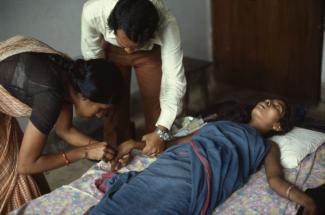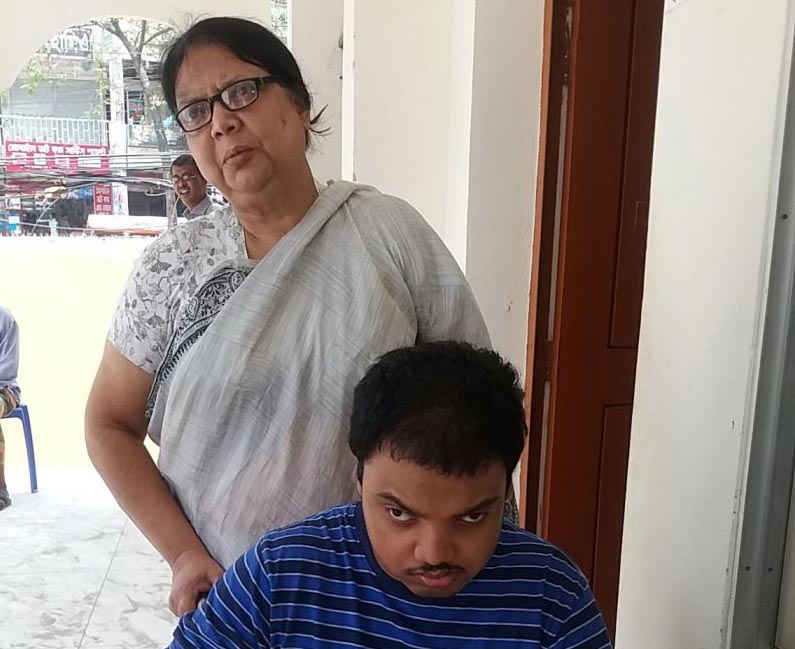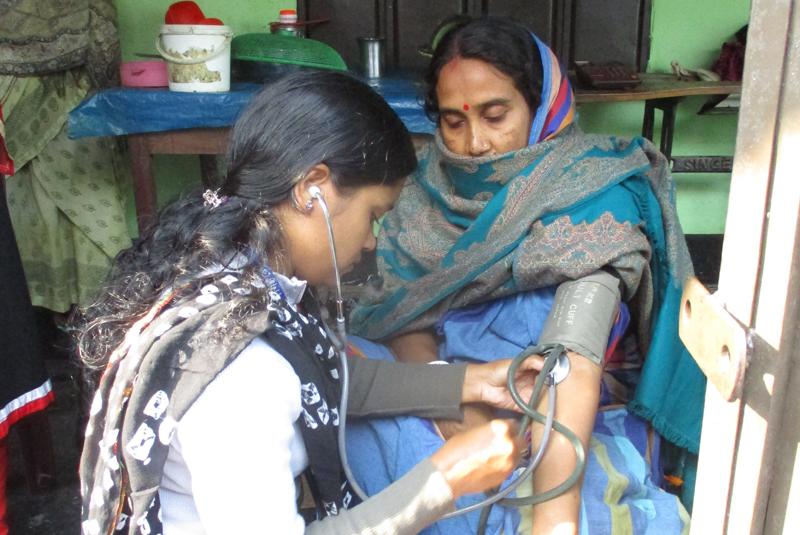Health care
“Involve the local people”

What kind of infectious diseases is Bangladesh struggling with?
Well, about 60 % of the disease load is infectious. Pneumonia and other infections of the chest and respiratory system are a serious issue. Sexually transmitted diseases cause a lot of suffering, and gastro-intestinal illnesses matter too.
What about diseases that affect tropical countries but tend to be neglected by pharma research?
Bangladesh has actually made good progress in reducing the prevalence of rabies by providing free vaccines. There is an effective national immunisation programme. Kala-azar, which is internationally known as Leishmaniosis, remains a problem in some parts of Bangladesh although it has been eradicated in most countries, primarily through public health measures. The incidence and spread of dengue is on the increase.
When I first came to your world region in the early 1990s, I was told that diarrhoea was a killer.
That is no longer so today. To survive diarrhoea, the essential thing is to avoid dehydration. Especially young children lose a lot of fluid, and that fluid has to be replaced. It really only takes safe water, some salt and a bit of sugar (glucose). Even poor parents can handle that, provided they know what to do. In Bangladesh, the knowledge has spread, not least thanks to awareness raising, so the number of deaths due to diarrhoea has decreased considerably.
Does that show that a low-income country like Bangladesh can cope with the challenges of infectious diseases on its own?
It depends. If the treatment is well understood and simple, we can cope on our own. But that is not always the case.
- First of all, not all diseases are well understood, and for many, there still is a lack of treatments. You just mentioned the so-called neglected tropical diseases. More research is needed, and research is expensive, so resources must be mobilised and pooled globally. Drug companies must be involved, universities must play their part, and medicines must be used rationally, or otherwise resistances will develop fast. These things must be dealt with at the global level.
- Second, not all treatments are simple. Our health-care infrastructure is weak, especially in rural areas. It needs to become stronger to deal with all health issues competently. And to make it stronger, we need to invest in the system, and some foreign support is certainly useful. We mustn’t forget, moreover, that chronic diseases are becoming ever more important: hypertension, kidney failure, cancer, diabetes, mental illnesses et cetera. Poor countries’ health-care systems must rise to these challenges, but all too often, they are simply overwhelmed.
Are rich nations' aid agencies and global institutions such as the World Health Organization (WHO), Gavi (the Vaccine Alliance) and the Global Fund to fight AIDS, Tuberculosis and Malaria doing a good job in terms of promoting research and supporting the expansion of health infrastructure?
The problem is that they focus too narrowly on scientific solutions. Ultimately, they are leaving everything in the hands of doctors and drug companies. But that is not the right approach in low-income countries. We need to reach masses of people fast, and we do not have enough doctors – not least, because so many are migrating to rich countries where they can earn more money. We need to focus on achieving the greatest impact at the grass roots level.
What do you propose?
The trick is to involve the local people, and the people who traditionally take care of their health. Traditional birth attendants can make a huge difference, as I elaborated in your paper a few years ago. It makes sense to train them, to update their skills regularly and to expose them to modern knowledge. The people must know what serves health and what does not. Doctors must be made accountable for their service quality and behaviour with patients. Prescriptions must be subject to audits. Every death in a health facility must be subject to public scrutiny, more so in the case of private hospitals and clinics. It has been reported that some private hospitals have prolonged patients' stay long after their demise with the excuse that the patient was still clinically alive i.e. not yet brain dead. A dedicated ombudsman for health services can introduce necessary reforms.
Do you want to raise awareness among the people in general, or are you focussing on traditional healers?
Both must be done. If the people in general have no idea of what is healthy, they will be hard to convince of doing the right things. And those who are in the best position to convince them are the people they turn to for help and trust. Nurses matter, paramedics matter, they all deserve our attention and require capacity development. In developing countries, health centres tend to be under-staffed, and the lives and welfare of patients depend on everyone who works there. Our vision at Gonoshasthaya Kendra (GK) is that people at the grass roots level should be able to handle standard problems and know when to turn to a referral doctor or hospital. We are not opposed to scientific medicine, not at all, but we have to put things in context.
Should that not be part of medical school curricula?
Well, they should consider social-science studies concerning health, but so far they hardly do so. Even basic economic issues are not taught in medical school. Aspiring young doctors should learn about keeping health-care costs low. They should learn to pay attention to the affordability of drug prices. These things are essential if we want to make health care more effective in developing countries. Generic drugs are important, because they are cheaper. In Bangladesh, we have built a strong generics industry, which helps to reduce health-care costs. The WHO could do even more to promote these causes than it has done so far. Not only medical research is important, research into making health care affordable is just as important.
Is there scope for south-south cooperation?
Countries should definitely share experience on low-cost solutions that work. Currently, dialysis costs less in India than in Bangladesh and is even free in Pakistan. Obviously, our country can learn from those examples. That said, some things cannot be easily replicated elsewhere. Consider sparsely populated regions in Africa for example. They cannot copy our model of rural health centres in a densely populated country. Every GK centre is within reach for many thousands of villagers. They would not be viable if they could only serve a few hundred.
Zafrullah Chowdhury is a doctor who returned to Bangladesh from Britain during the liberation war in 1971 and started the rural health-care organisation Gonoshasthaya Kendra (People’s Health Centre). He is currently setting up a dialysis centre at GK’s hospital in Dhaka where they hope to provide dialysis for 400 patients every day at an affordable price for the poor (USD 14 per session). GK is looking for a transplant surgeon and nephrologists to help run the centre. GK would welcome support for this initiative.
For further information please contact Dr. Mohib Ullah Khondoker mohibgk@gmail.com
Links
Zafrullah Chowdhury on:
The history of Gonoshasthaya Kendra:
http://www.dandc.eu/en/article/health-universal-right-argues-gonoshasthaya-kendra-bangladesh
Generic pharma production in developing countries:
http://www.dandc.eu/en/article/bangladesh-self-sufficient-pharma-production
Traditional birth attendants:
http://www.dandc.eu/en/article/praise-traditional-birth-attendants-bangladesh









